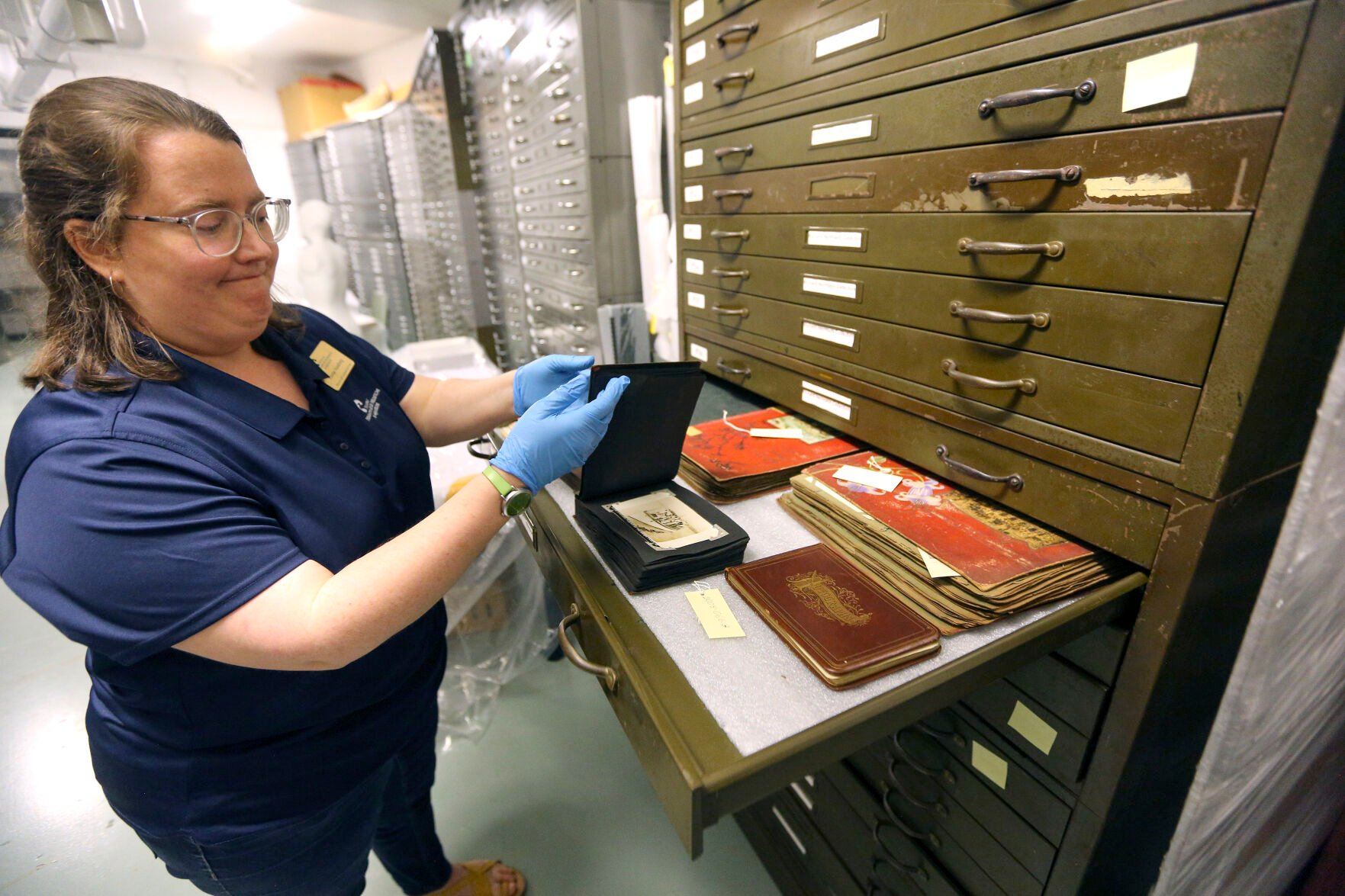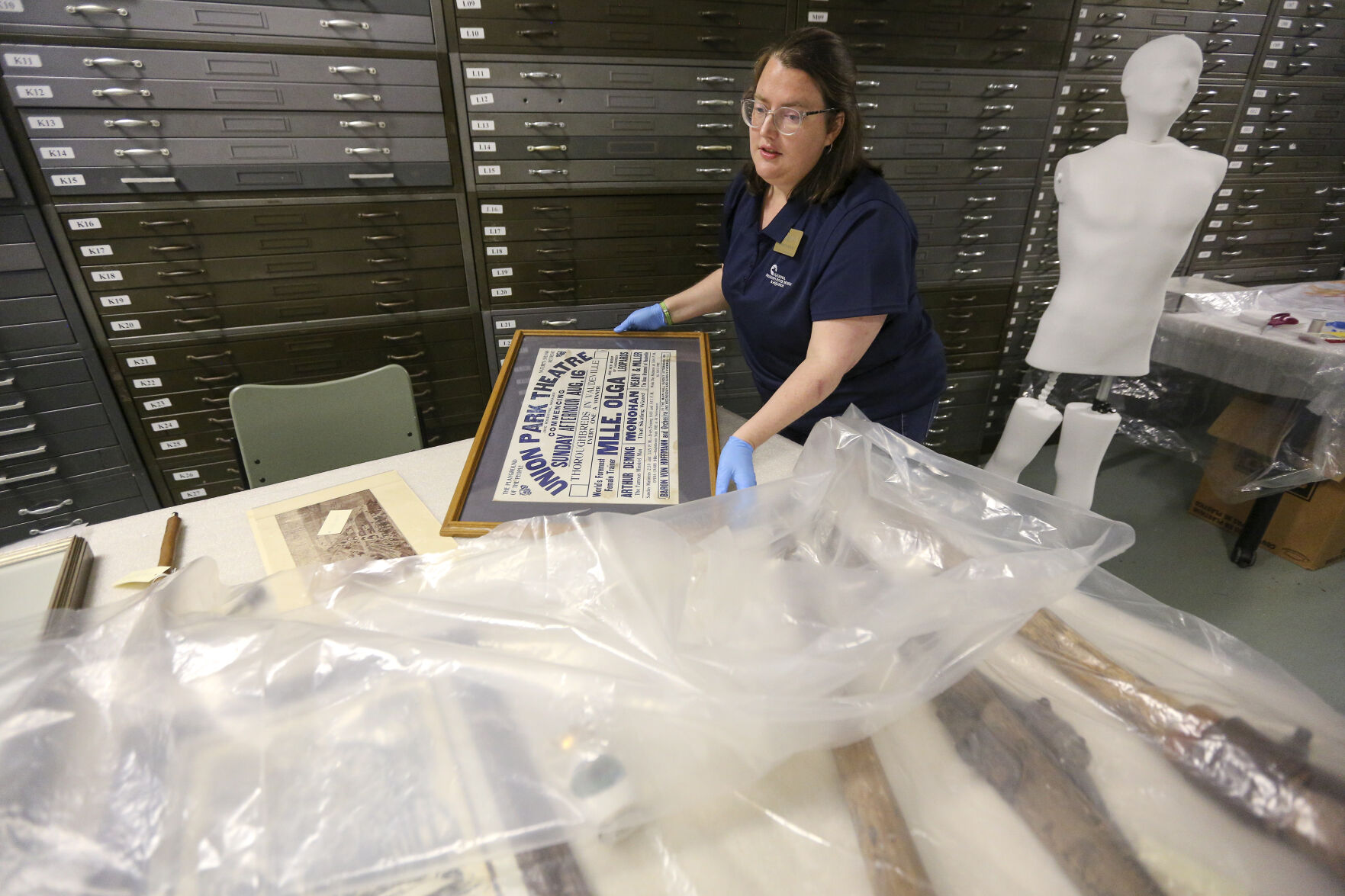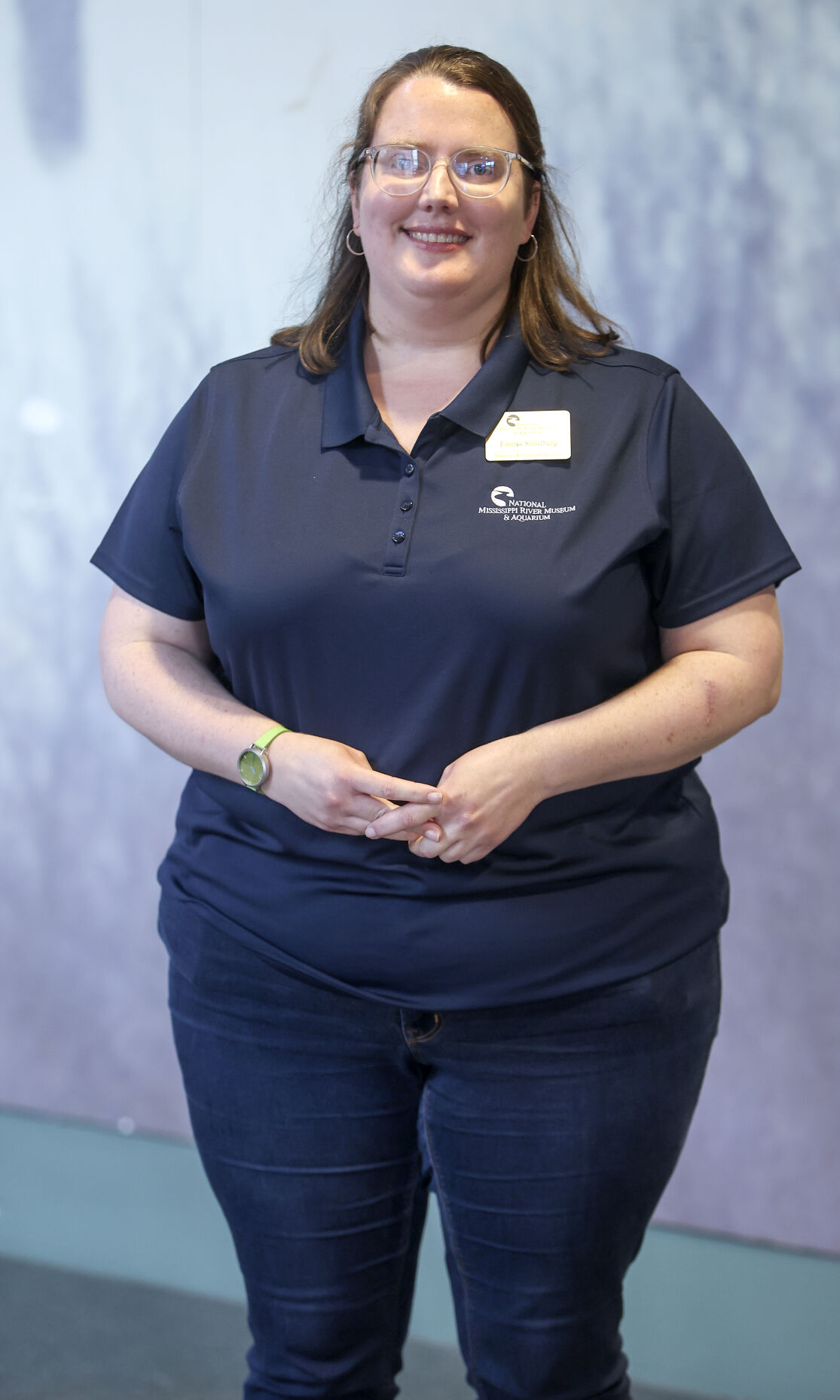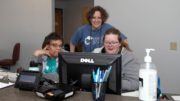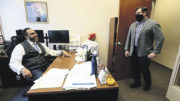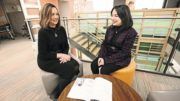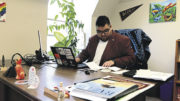Sundberg describers herself as a “museum person.”
She came to Dubuque about a year ago when her job brought her to the National Mississippi River Museum & Aquarium.
“I’ve been in the field — whether as volunteer, intern or paid staff — since high school and was lucky to find supportive programs in both my undergraduate and graduate work,” she said.
She has degrees in history, and holds an additional graduate certificate in museum studies.
Tell us about your field and what attracted you to it.
Museums are in the same field as public gardens, zoos, aquariums and science centers, as public spaces of culture. People might visit for different reasons, but the basic function of each is similar. These places provide experiences of exploration and learning in an informal setting using their collection as storytellers.
I am attracted to this field for the opportunity of being part of this meaning making.
How has your field changed in the time you’ve worked in it? How have you adapted?
One change that occurred since the beginning of the pandemic is a practical one of taking the collection and programming online.
I believe more museums are building out a stronger online presence and will continue to in the future. Adapting to that is a learning curve of understanding how people engage with online media. By now, studies readily exist of trends of in-person visiting, but the habits of museum visitors online are harder to assess.
I’ve adapted personally by making questions of how well information might translate digitally part of every conversation.
Is there a person or people who have had a tremendous impact on you?
Too many to identify a single person or even a group of people. I am the result of a tremendous amount of guidance from former (and current) colleagues, a liberal arts academic background and a host of supportive and critical thinkers of friends and family.
The first billing should go to my parents, though. They taught me to be curious and the love of teaching — while also showing me that I didn’t want to grade papers when I got home like they did.
Do you have any advice for young people and/or new graduates?
Experience is invaluable whatever it is. Get that internship, get that temporary project-based job and just build that experience. Don’t be afraid to move around and explore different aspects of (museum) work: education, finance, curatorial, etc.
The truest thing about working (in a museum) is that you will get to do what you were trained for at least 90% of the time, but the other 10% is stepping into “other duties as assigned.” Get comfortable.
Is there a story or an anecdote that illustrates your philosophy either in life or in your chosen field?
Be curious. It’s not a story or anecdote but just a motto because every idea comes from being curious.
What have you found to be the most valuable resource for learning? Are you an on-the-job learner or do you prefer another way?
For me, the most valuable resource for learning are the people I talk to about whatever it is I am working on. Brainstorming sessions, reviews and conversation are all growth spurts in the development of the process and ideas.
I enjoy the doing of things and can think of myself as an on-the-job learner, but I also learn through passive observation. Just depends on the topic and the day sometimes.
Math vs. creativity. People person vs. introvert. Slow and steady vs. quick and nimble. Where do you fall on those divides? Do you believe there even is a divide?
I do not consider these pairings divides, more like interplaying characteristics than anything. I can be one or use one at some point and then lean on the other at another time.
They also build and support one another, too. For instance, in any one project I can exhibit quick thinking, but that hides the slow and steady experience that brought me to that point.
When you think of the future, what kind of changes would you like to see in your field? In the broader world?
Tough question.
Broadly I think museums need to prove their relevance. That might be different for each of them, but it is about being engaged with the community they serve. Museums are not just sites of learning something educational, but are often drivers of identity-forming conversations like “who am I?” and “who are we?”
Traditionally, this is noninclusive and highly centered on a western European history, which will take time to dismantle. That is the kind of change I want to see in the field. Open the doors, share the storytelling.
How has your professional life helped you grow as a person?
My professional life keeps my critical thinking alive and well. Keeps me asking questions and considering different views.
How do you strike a work/life balance?
Keeping in mind that it’s important to be self-aware enough to know my capacity and honoring my time. I am constantly checking in with my mental health and re-evaluating where I am at.


